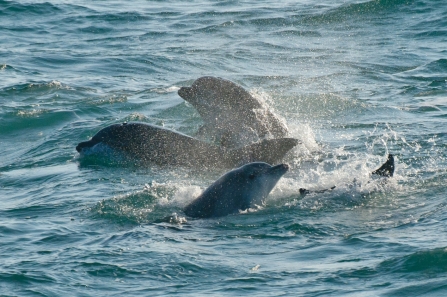We are incredibly lucky here in the Southwest of England to have bottlenose dolphins in our waters and to regularly see them from land and boat. Sadly, however, there is currently no specific protection offered to these animals and the establishment of protection measures will only be supported if robust evidence can be provided.
Cornwall Wildlife Trust launched its Bottlenose Dolphin Appeal during 2015 to raise awareness and much-needed funds to progress this work and is pleased to say a huge amount of work has been conducted in the past year as a result of that funding.
Work conducted over recent years by many organisations and individuals including MarineLife, Marine Discovery and Cornwall Seal Group Research Trust highlighted the importance of the region for bottlenose dolphins. However, this was only part of the picture and Cornwall Wildlife Trust instigated the formation of the Southwest Bottlenose Dolphin Consortium, a collaborative partnership including scientists, research groups and eco-tourism operators, to build on this work to better understand our local dolphins.

